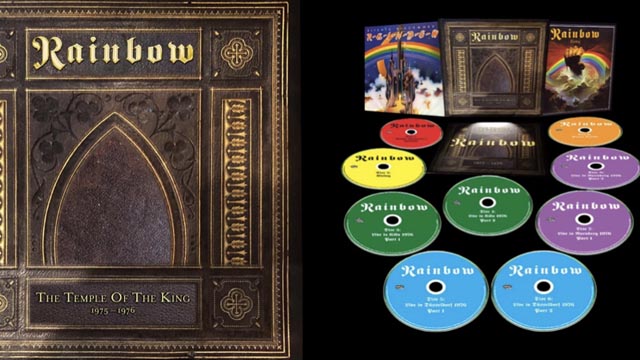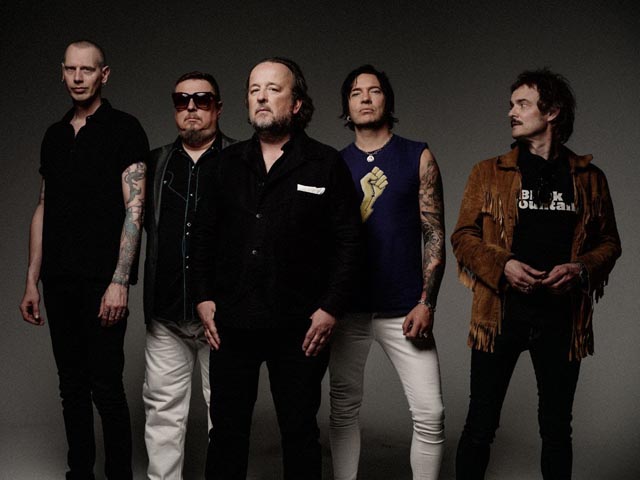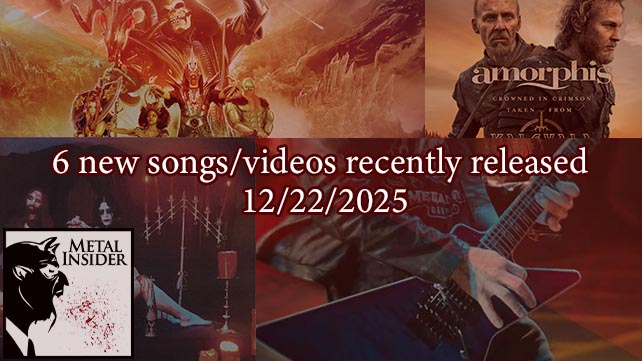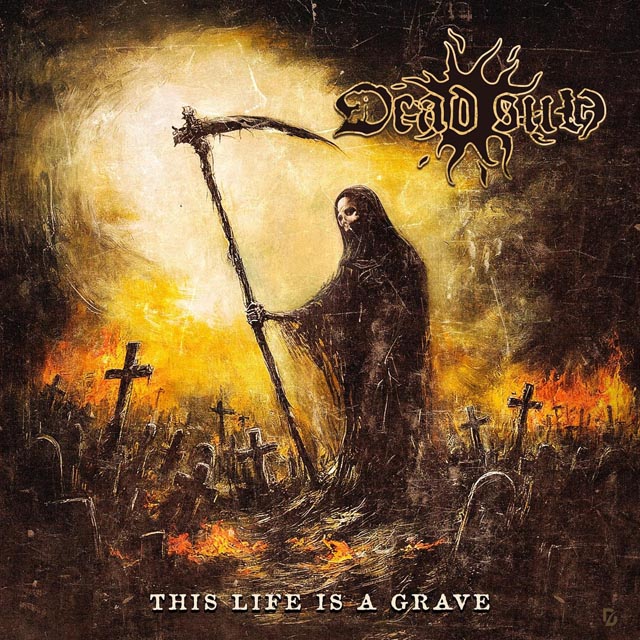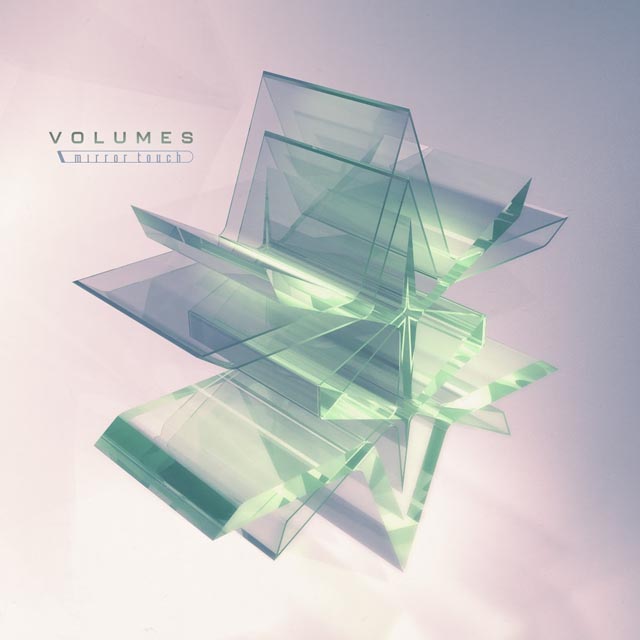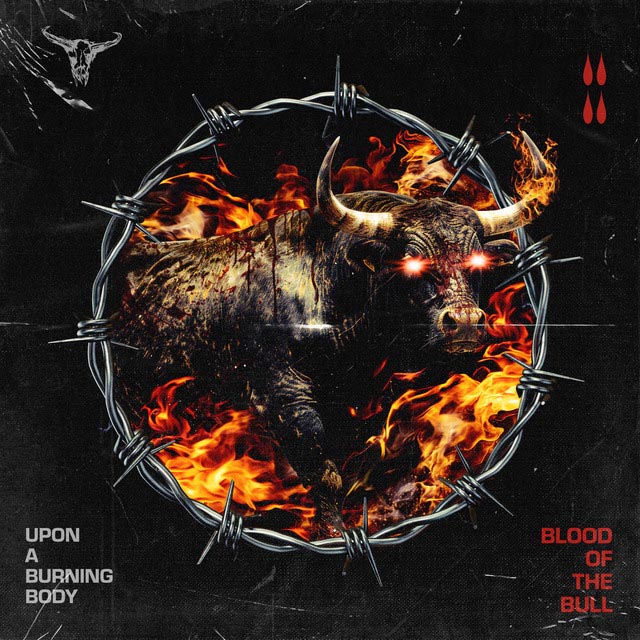In the ’90s, Downset emerged from the Los Angeles underground, blending hardcore and hip hop influences. The band’s issue oriented songs about the Los Angeles riots (“Anger”) and graffiti (“Pocket Full of Fatcaps”) brought them airplay and plenty of touring opportunities. After two albums on Mercury, one on Epitaph and an independent, they took an extended break in 2009. Last month, a reformed Downset released their first album in 10 years, One Blood. We caught up with singer Ray Oropeza and guitarist Brian Ares Schwager to discuss what’s happened in the decade since they’ve released an album, what took them so much time, and what their thoughts are on the revival of rap-metal, a scene they were lumped in with.
So I’ll start by mentioning that this is your first album in a long time, what took you so long?
Brian Ares Schwager: Basically we got back to LA and wanted to start writing more music in 2005, we came back from a European tour. In 2005 we started working on the One Blood album, and at that time the band, me and Ray were working on the album, it was just the two of us, and things just didn’t end up working out with the people that we were in the band with at that time, and it took a long time. We worked on it on several occasions from 2005 to 2006, then came back in 2009 and ‘10 and worked on it again. Basically in like 2013, we just reunited with James Morris and with Chris Hamilton, and just from different places of meeting up with them, it just felt right. We had these songs and we were like “Look, we just want to complete this album, we have something real special and this needs to get out.
Ray Oropeza: One thing’s for sure, during the course of all this time, which is a pretty substantial amount of time, which is 10 years. What happened at that time, we were tightly associated, and at other times I went off and was union – I’m a union activist, I was doing that. He (Brian) has another profession, and just people were growing in other directions, but I was tellin ‘em ‘look man, we need to put this record out,’ and he was like “Ray we’re gonna do this,” and it was so off and on throughout the course of 10 years, but we made it happen.
You guys kind of broke up for a little while, right?
BS: I read a lot of stuff on the web, and I don’t believe, what I believe is that we did not speak up for a long time, if you want to say, so people are misled. I read a lot of stuff and I’ll leave it at that. We were absent, more than broken-up, me and Ray have maintained friendship, hung out when we can, when we have available time to go see each other, actually we probably became the best friends we became over this whole last experience of this record.
RO: Think about it about, for the last 10 years, can you guys? What you’ve done in the last 10 years personally, it’s probably very graphic, and very dynamic. Same thing for us, the only thing is that we’re in a band, and we have the public’s attention towards this particular topic, and because of that it becomes a public matter, and most people’s lives are not a public issue, ours is. People when they say, “they broke up,” I didn’t start doing Instagram (@RayDownset) until 3 and a half weeks ago. I’m a very private man, I have my own stuff going on, I have my friends that I’ve had ever since, I’ve known Brian for over 20 years, and because of that I think people have developed this mystique about us not being projected into the public spectrum, and that’s what a lot of this is about, and when that happens, ideas run rampant, and that’s what happened here.
BS: It was just an absence of us, getting up and being “look, this is what we’re really doing.” We didn’t know what we wanted to do with the record, we put out three, two records with the self-titled and Do We Speak a Dead Language? on majors then we put out Check Your People on Epitaph, then we put out Universal, you know, on Hawino [Records]. They did a real short run as a record label and our record suffered a little from doing that, so we didn’t really know exactly what we wanted to do. That was the hardest thing, the more we got the together the more we’re like “we can pull this off.”
What made you realize you could pull it off independently?
BS: Just from talking to other people I’ve seen do it more in the hip-hop realm, and not as much from the hardcore. I have different friends that are in the LA hip-hop area, doing their own records, doing quick studies online and realizing “we actually can do this ourselves,” you know what I mean, “we can, and we have a really good shot at it, and this is our art, for music and visual art. Why don’t we present it to everybody exactly how we want it, see where it goes, instead of being on somebody else’s schedule.” When you’re on a label, they’re dictating their schedule, and just being older, I have a son and Ray has a really good job, James has a really good job, Chris Hamilton too has a really good job. We want to make this fun first of all, that’s was the whole thing. We said “we’re gonna make this about fun. Let’s not go out there and make this a stressful headache, let’s try and go out and have fun together.” It comes through in the unifying of all of us in all the music, too. This album has a really great vibe to me man, we just got the CDs from Discmakers, cranked that thing the whole way. *laughs* I thought we were gonna get lost, we can’t communicate in the car cranking this thing up.
RO: We’ve been absorbed into, I’m not gonna name drop the institutions, these institutions, we’ve worked with them, we’ve been in the music business for a long time. You can do this yourself right now, but it’s gonna be a lot of work man. Seriously, we’re doing 17-18 hour days; it’s unbelievable how much work we’re actually doing.
In the 10 years since you’ve put an album out, the record industry has changed dramatically. It’s gotten a lot more easy from technology to working with specialized companies where you can just outsource.
BS: Recording a good album is not easier, but recording an album is probably easier. That was a hard thing on this album too; is just we wanted to make sure we gave. We went back and we studied our self. Our influence was all our albums on this, you know, really try, on a production standpoint, to land this almost before Check Your People in the timeline chronographically. This album should have landed maybe ‘right here’ instead of ‘over here,’ you know, so that was the goal because Dead Language we were on a super charge, and I think people want to hear us a little rawer, keeping it rougher.
So the album’s out, you mentioned all of you have jobs, families, etc., how much time will you have to put into it?
BS: I think when opportunities present themselves that make sense, then we’re gonna be there and do it, you know what I mean? Otherwise, we’re just gonna continue to move forward, but the pace really is going to be about the opportunities that present themselves. Just like how we got involved with you guys, if the metal radio is going to pick up and things are gonna end up working out to where this thing starts moving at a pace that we’re just jumping in the river thats going downstream as quick as possible, we’re in there. It really just depends on how everybody feels about the album when the public hears it, and the response and what the opportunities are.
How do you feel about the fact that you have a #1 most added record at metal radio?
RO: I think that it’s two things, I think it’s two things. #1 is I think, obviously I think, that in just my personal opinion, one of the best records we’ve ever done man. You listen to the songs, the response that I’ve got from it, it’s not like “ah this an alright record,” “ah that’s okay,” people are really, really moved by the lyrics and the music. #2 I’m not too sure how, what are the logistical topics that show that these radio institutions the influence to play it, so I can’t answer that. I don’t know. I think it’s a good record, I’m not too sure how these institutions of radio are responding to that degree. Do they like it? Is that what’s going on? It’s an appealing record to this faction of the industry.
I think it fits right in alongside the first two, and Check Your People, I’m actually not too familiar with the fourth one.
RO: Universal? I’m telling you, that’s one of the most overlooked records we’ve ever done. That shit is ill.
BS: The songs that we show up and play, the Universal songs too, live, they’re gonna stick out and be like “woah.” We toured with Linkin Park, and Snoop Dogg, and Korn on that record, and those songs…
RO: They’re a little different.
BS: They’re looking at a different, more on a hip-hop, heavier hip-hop vibe than say a heavier, metal vibe. But they have a bounce to them also, that when they enter the room you’re like “ooo”, like “woah.” This is gonna be really fun. We’re going out there with like 70 Downset songs, hammering it back to 13 or 14 tracks.
There’s obviously the other version of Downset that was touring, how did that all work itself out?
RO: Personally I have no response, just to keep it clean.
BS: I told them that they can continue to do it if people like it, to have fun. We’re not trying to not have them do it.
Downset fit alongside the rap-rock-y thing, even though you come from more of a hardcore space. Now that that genre, with bands like Emmure and Attila, some of the newer bands, that kind of look up to bands like Limp Bizkit, Kid Rock, and you guys as influence, how do you feel that rap-metal is kind of a cool, accepted thing again?
RO: I think this is my personal conviction here over this topic. I’m 45 years old okay? I’ve been into punk rock before it was like, I’ve been into punk rock since I was like, honestly, 11 or 12. I used to walk down the streets in the valley in Hollywood in LA and see like these people walking down the street. My mom would be like “stay away from those people.” *everybody laughs* and I used to be like ‘What are these people saying,’ because I’d see things on their shirts. But in my family, my father was a Vietnam veteran, my father was very to the right, my mother was to the left, so we grew up in a household where both sides of the topics being addressed, both the left and the right. So that grew into a conscious environment in the household that I grew up in, how that developed into my involvement with music. I really started to really touch it and absorb it, and go out and go to shows. When you went to the Long Beach Arena to see Run DMC, you didn’t go to go see Suicidal Tendencies or the Red Hot Chili Peppers on the west side in Venice. There were two different things, and at that time, there was a certain group of graffiti writers in LA that were going to both. So I was able to go to both, and naturally through the course of my life, two of those topics came together, okay?. And that manifested itself phonetically, idealistically, with my ideas with the type of music, the people that I knew.
I met Brian through my friend Skate One, rest in peace CBS, I met him and he was into the same thing. He was into hardcore, and he was into hip-hop at the same time, and these guys are LA legends in hip-hop scene. What I’m saying is, that’s where it started, and where it is today, where we’re at today at the Syndicate, and how it evolved into this whole specific topic, you mentioned these others bands. I don’t know what they’re doing, I don’t know how they got there, I know my own personal experience with hip-hop and hardcore, this is how it evolved, and how the public, how society projects it is up to them. How these other bands influence other people, I don’t know, but I know that we have done this music for such a long time, anybody who’s inspired by it or mimics it or has been a part of it, I wish them well, but it’s such a natural personal point, in my personal life that I’m not monitoring the society or its music or its popular culture to a degree where I understand where it’s going or what direction. We play a certain type of music, that’s it, that’s how we came up with this record. I wasn’t following any type of band or what’s going on or music trends at all.
BS: We were just being ourselves, to tell you the truth, really trying to be like “lets not try and make the new things, let’s just play Downset.” That was what it was, that was just the whole vibe the whole time, “let’s just make Downset right here.” We already had 50 something tracks to listen to and be like “that’s Downset, let’s play some fuckin’ Downset together, you know, this is what we do.” People love what we did.
RO: I’ll tell you this, just add this too, it’s baffling, I think that’s meager language, I think that’s not the right word, but it’s baffling to see how much punk rock and hip-hop have integrated into the society, because I remember going to punk rock shows and these people wore GG Allin shirts and these guys were not accepted by the society. People who were from pretty middle class, conventional families, you don’t see punk rock people, when I see as a kid. Like I told you, my mom she’d be like “watch out for that person with the trippy haircut” or “watch out for that guy ‘bombing’ the bus, he’s painting on the bus. Don’t do that stuff because that’s bad, that’s gonna get you in trouble.” How punk rock or hardcore or metal or whatever you wanna call it, I don’t know what people are calling it these days.
All of those.
BS: Hard-punk-metal-core
*Everybody laughs*
BS: Hard-punk-metal-core-hop
RO: How hip-hop evolved into the commercial idea that is it now, it’s almost like “wow,” cuz this shit is large. From what I can see, hip-hop and punk rock are just public. Unbelievable man!
It’s a crazy difference over the last 30 years.
BS: It really is, it really is.







